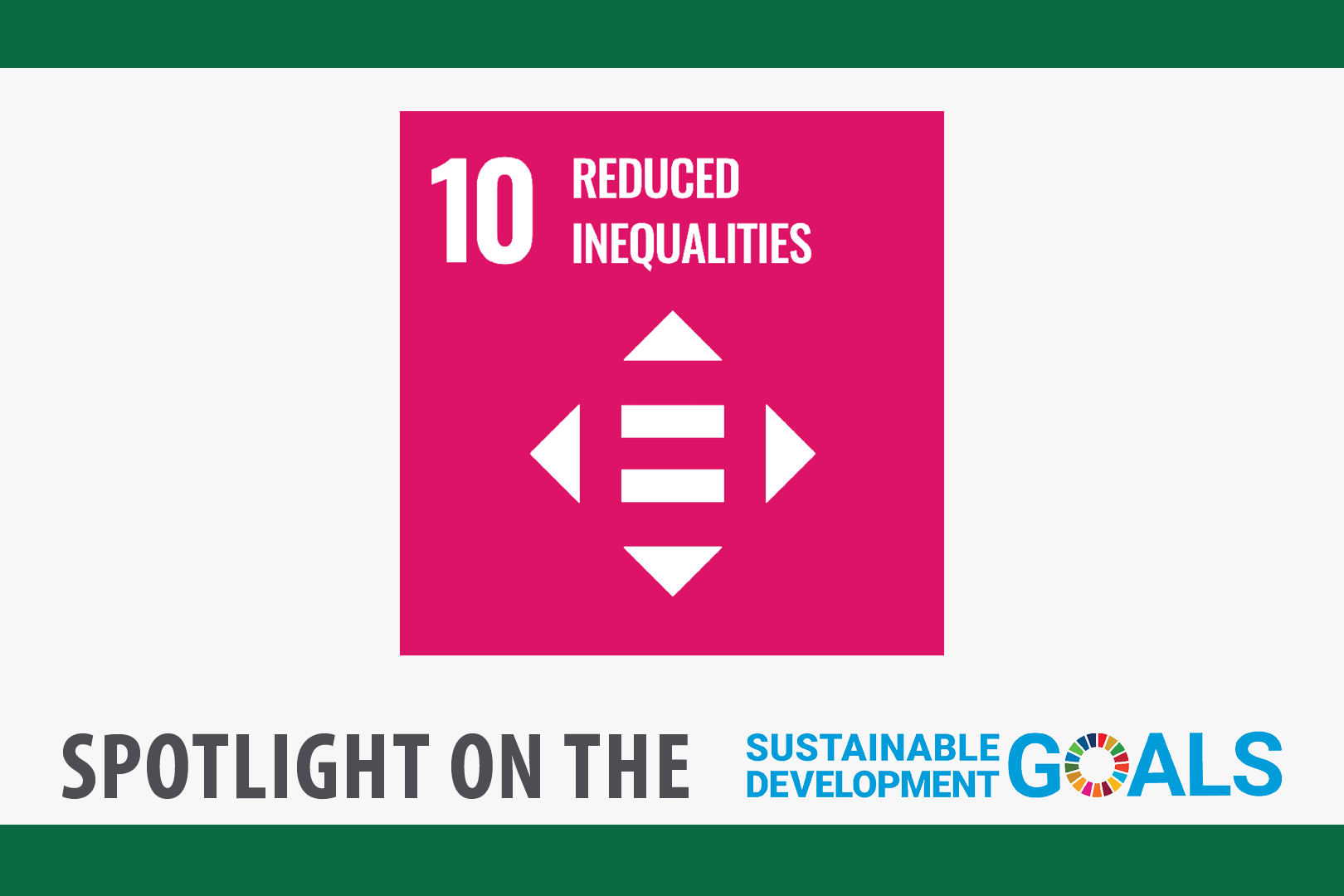
SDG Spotlight: Goal 10
Reduce inequality within and among countries
Inequality threatens long-term social and economic development, harms poverty reduction and destroys people’s sense of fulfillment and self-worth.
The incomes of the poorest 40 per cent of the population had been growing faster than the national average in most countries. But emerging yet inconclusive evidence suggests that COVID-19 may have put a dent in this positive trend of falling within-country inequality.
The pandemic has caused the largest rise in between-country inequality in three decades. Reducing both within- and between-country inequality requires equitable resource distribution, investing in education and skills development, implementing social protection measures, combating discrimination, supporting marginalized groups and fostering international cooperation for fair trade and financial systems.
Why do we need to reduce inequalities?
Inequalities based on income, sex, age, disability, sexual orientation, race, class, ethnicity, religion and opportunity continue to persist across the world. Inequality threatens long-term social and economic development, harms poverty reduction and destroys people’s sense of fulfillment and self-worth. This, in turn, can breed crime, disease and environmental degradation.
We cannot achieve sustainable development and make the planet better for all if people are excluded from the chance for a better life.
What are some examples of inequality?
Women and children with lack of access to healthcare die each day from preventable diseases such as measles and tuberculosis or in childbirth. Older persons, migrants and refugees face lack of opportunities and discrimination – an issue that affects every country in the world. One in five persons reported being discriminated on at least one ground of discrimination prohibited by international human rights law.
One in six people worldwide has experienced discrimination in some form, with women and people with disabilities disproportionately affected.
Discrimination has many intersecting forms, from religion, ethnicity to gender and sexual preference, pointing to the urgent need for measures to tackle any kind of discriminatory practices and hate speech.
How do we tackle discrimination?
In today’s world, we are all interconnected. Problems and challenges like poverty, climate change, migration or economic crises are never just confined to one country or region. Even the richest countries still have communities living in abject poverty. The oldest democracies still wrestle with racism, homophobia and transphobia, and religious intolerance. Global inequality affects us all, no matter who we are or where we are from.
Can we achieve equality for everyone?
It can – and should be – achieved to ensure a life of dignity for all. Political, economic and social policies need to be universal and pay particular attention to the needs of disadvantaged and marginalized communities.
What can we do?
Reducing inequality requires transformative change. Greater efforts are needed to eradicate extreme poverty and hunger, and invest more in health, education, social protection and decent jobs especially for young people, migrants and refugees and other vulnerable communities.
Within countries, it is important to empower and promote inclusive social and economic growth. We can ensure equal opportunity and reduce inequalities of income if we eliminate discriminatory laws, policies and practices.
Among countries, we need to ensure that developing countries are better represented in decision-making on global issues so that solutions can be more effective, credible and accountable.
Governments and other stakeholders can also promote safe, regular and responsible migration, including through planned and well-managed policies, for the millions of people who have left their homes seeking better lives due to war, discrimination, poverty, lack of opportunity and other drivers of migration.
SOURCE
- Despite the economic disruptions of the pandemic, the global share of people living on less than half the median income has been declining due to social assistance programmes. However, workers’ wages have not kept pace with productivity, and labour’s share of GDP has resumed its long-term decline.
- A historic reversal is threatening improvements in inequality among countries. The economies of half the world’s most vulnerable countries have been growing at slower rates than those of wealthy countries.
- More people died on migration routes in 2023 than in any other year on record. The number of refugees worldwide reached a historic high.
- Developing countries are not fairly represented in international economic decision-making. Strengthening their voice and participation is crucial to ensuring a more inclusive and equitable global economic system.
- Addressing inequality both within and among countries necessitates equitable resource distribution, investment in education and skills, social protection measures, efforts to stop discrimination, support for marginalized groups, and international cooperation for fair trade and financial systems.

